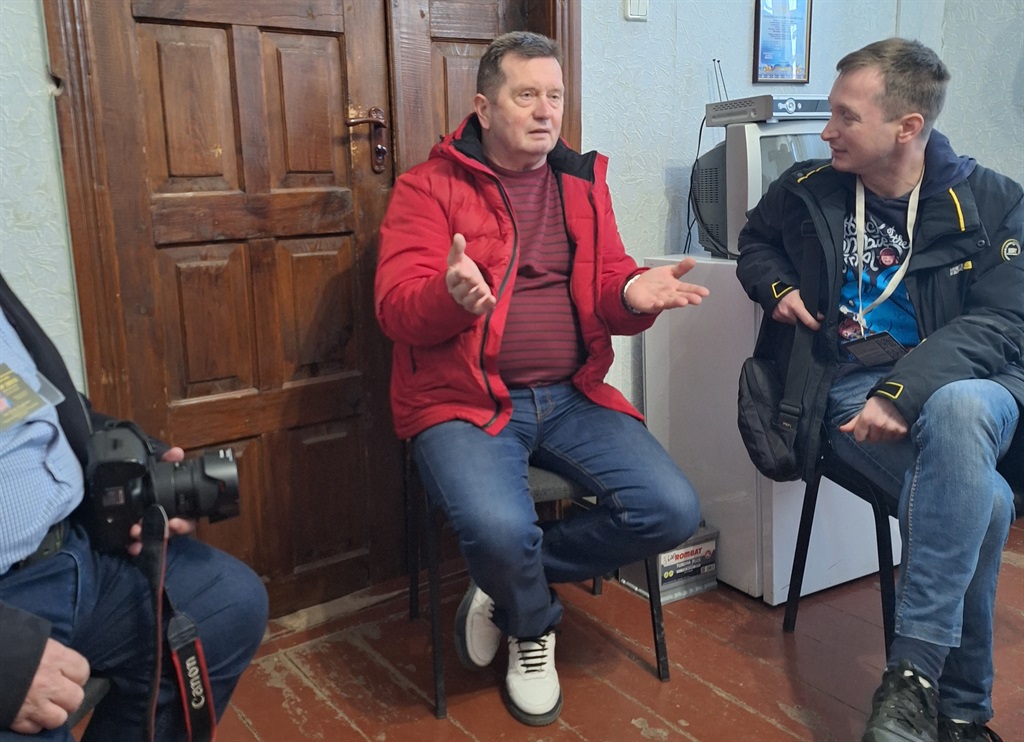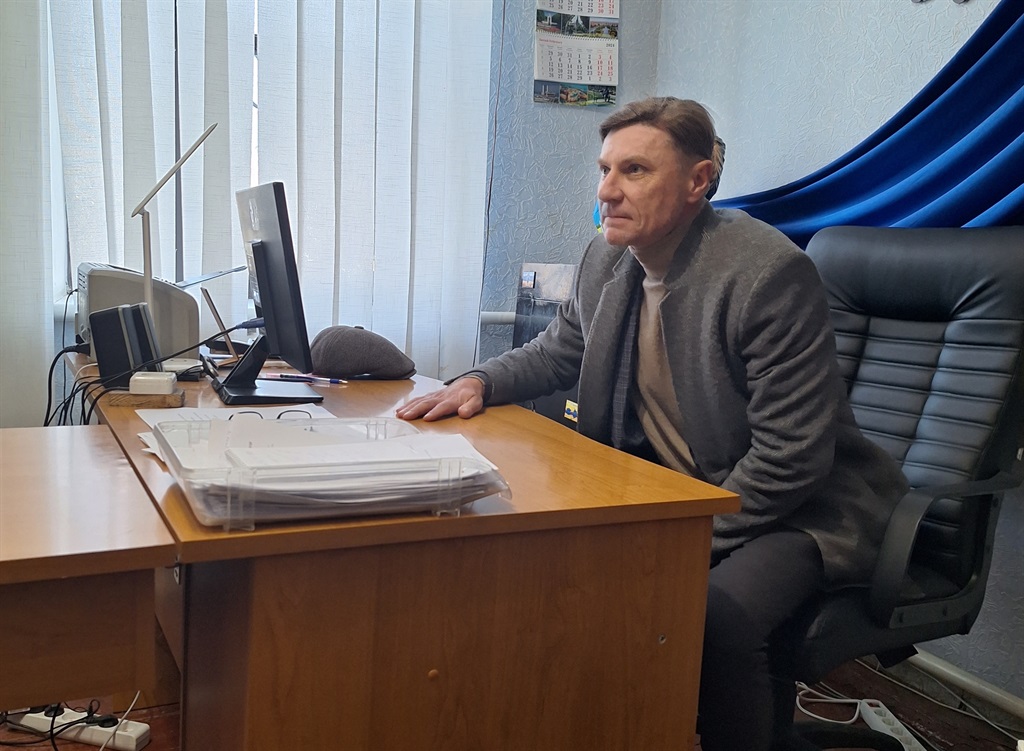
The bus ride from Odesa to Myrne is relatively short. It takes us to the farmland of Ukraine. Europe’s breadbasket, once thriving, has been throttled by Russia’s invasion.
Myrne, ironically, means "peaceful". It’s a small village and we’re met by its chief, Vladimir Osachi. It hasn’t escaped the missiles and the bombs. Fifty-one houses have been hit, 38 of them destroyed. From the village, 185 people have been mobilised for the war.
This means less labour to work the fields and harvest the vegetables. It’s difficult to recruit more people as they, too, get mobilised to fight for the country.
Children no longer enjoy each other’s company at schools – all teaching has gone online.
The village acts as a transit zone for refugees; they don’t stay to work, but pass through to other countries or the bigger cities of Ukraine.
READ: Ukrainian refugees - A people lost in their own country
You can feel this is a farming town, much like a dorp in the Free State or Limpopo.
Voldimor Skhabitski has been farming for 37 years. He tells us about his 200 hectares of land that produces vegetables, including aubergines and carrots; grains such as barley and wheat; and sunflowers.
“We send the food to market,” says Skhabitski. “It gets bought by traders, but it’s not easy and it has become more expensive to farm.
“The workers sometimes bring rocket or drone parts in from the fields. It’s dangerous but we still have to do what we do,” he says – his voice is hoarse, as if he has been bellowing his anger at the skies.
He says:
The war has brought difficulties.
“There are blockages at the border, such as to Poland. In all my farming years, the past two have been the worst. In the beginning, it was really tough. Gas lines and fertiliser supply chains were disrupted.
He says:
The conversation moves from just his farming to the obstacles that farmers are facing in Europe. He believes that the border blockages have been designed to sabotage Ukraine’s economy.
“There are third parties involved,” he says, his brow furrowed, his voice deeper.
READ: Letters from Ukraine: Mothers and kids in Kyiv wait out the attack on the capital of Ukraine
“This problem must be fixed in a civilised way. We must find a political solution. These people must be exposed so we can see who they are.”
Skhabitski gets more animated and says Europe’s drive to a green economy will have a dire effect on them. The farmer says:
The government though, has helped. Small-scale farmers were provided with 2 tons to 3 tons of fertiliser this year, before the planting season began.
Asked whether climate change has had any effect on his farming, Skhabitski falls silent. Then he says:
Asked whether he has turned to other income streams during the war, he smiles. “In time of war, all business is unstable. The only things that make money are prostitutes, drugs and guns, and I haven’t the appetite for any of those things,” he laughs.
How and when does he think the war will end? “We will win. The war will stop spontaneously but we will be victorious,” he says.
Sidebar:
Skhabitski employs anywhere between five and 55 people during the planting and harvesting seasons.
He is married and has a son, a daughter and two grandchildren.
Like many in Ukraine, they have left the country. They fled to Switzerland on the third day of the war.
The deepest tragedy for him is that, when his grandchildren left, they were babies and they are now growing and he has missed all of it.
The trip to Ukraine was made possible by the Zinc Network.




 Publications
Publications
 Partners
Partners










